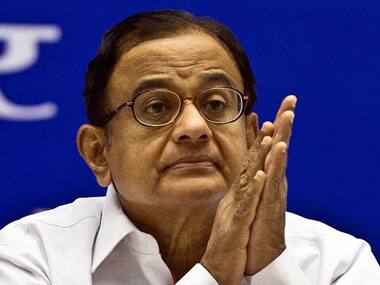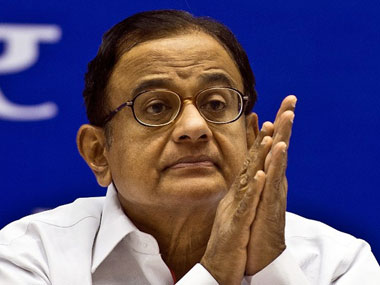In 2009, even as clean-up crews continued to sift through the debris of 26/11, then-home minister P Chidambaram was ushered into the throbbing heart of the United States’ war against terrorism, its super-secret National Counter-Terrorism Centre. He gazed intently, an aide recalls, at its giant, filmic video-walls, where information from across the world displayed in real time, and asked searching questions about the dozens of classified databases that feed them. He gathered reams of material—perhaps even the promotional video that’s now online. Later that year, Chidambaram condensed all this knowledge into the most stupid national security concept to emerge from the United Progressive Alliance government’s idea-factory. He promised have a made-in-India NCTC would be up and running “by the end of 2010”— a third of the time it had taken the United States. “India cannot afford to wait 36 months”, he declaimed. Earlier today, opposition chief ministers in New Delhi have made clear they think it can— torpedoing union home minister Sushil Kumar Shinde’s calls for them to endorse the setting up of the NCTC. In March, Shinde had responded to furious protests by chief ministers by droppingplans to give an Intelligence Bureau-led NCTC powers of arrest. His new proposals cast the NCTC simply as an innocuous intelligence-sharing hub. Its probable the Congress will soon be complaining that the opposition is sabotaging the counter-terrorism effort for petty political reasons. Phew. India’s NCTC represents the abiding delusion that terrorism can be beaten into submission by English alphabets. It won’t, and can’t, work. Even bribing the Lashkar-e-Taiba and the Maoists with the Rs 3,400 crore the NCTC is estimated to cost will have a better chance of success. [caption id=“attachment_844323” align=“alignleft” width=“380”]  Chidambaram was the brain behind the NCTC. AFP.[/caption] For one, there isn’t one single known Indian case where lack of intelligence-sharing allowed a terrorist attack to occur. This is very different from the United States, where vast amounts of intelligence existed on 9/11 prior to the attack, but wasn’t properly processed. In India, there generally isn’t enough intelligence in the system in the first place, and when there is, there are rarely enough operational resources to do much about it. In the weeks before 26/11, for example, the United States Central Intelligence Agency, delivered two specific warnings that a Lashkar-e-Taiba death-squad had been despatched to hit Mumbai— on September 18 and 24, 2008. India’s own intelligence services had plenty of reason to believe an attack was imminent, and issued pointed warnings. The problem was the Lashkar-e-Taiba, possibly because of bad weather on the high seas, deferred the strike, and the system stood down. Mumbai’s police force, placed guards near the Taj Mahal Hotel— who would have been useless if an attack had come, because they were not properly armed or trained — but withdrew them. For weeks before last month’s massacre in Bastar, similarly, intelligence services in New Delhi, Chhattisgarh and Andhra Pradesh suspected a major attack was brewing. In a 26 April assessment, sources say, the Intelligence Bureau flagged the massing of Maoist forces that takes place each year prior to the monsoon. Intelligence like this, though, can be garnered from newspapers—and doesn’t, more importantly, help pre-empt anything. Take the case of the bombing in Hyderabad’s Dilsukhnagar earlier this year. Based on the interrogation of alleged jihadists Sayyed Maqbool and Imran Khan, the police’s intelligence services listed six potential targets in a warning issued on 15 November, 2012. The two men, police sources claim, said they conducted reconnaissance at Dilsukhnagar, Begum Bazar and Abids in July 2012, on instructions from fugitive Indian Mujahideen commander Riyaz Shahbandri. In 2013, the Bureau chipped in with three assessments of its own: on 16 February, it raised the prospect of terror strikes as retaliation against the hanging of Parliament attacker Afzal Guru; on 18 February noted that terrorists were likely to hit areas where reconnaissance or strikes had earlier taken place; on 19 February, meticulously listed targets where arrested terrorist had conducted reconnaissance the past. None of the three warnings, however, could have enabled pre-emption of the attack. “I guess we could have kept hundreds of constables hanging around the streets indefinitely after that, looking for potential bombers," a senior Hyderabad police official says. “But we don’t have hundreds of people to be kept hanging around, and secondly, the terrorists could just find another target.” “Let me tell you a story about these intelligence alerts,” another senior Andhra Pradesh police officer says. “In August, 2005, a Member of the Legislative Assembly was assassinated by a Maoist death squad. Now, on that occasion, there was hard intelligence that an assassination was planned, but we didn’t have the resources to enhance protection for every vulnerable person. Now, though, every 15 August, I get a warning that legislators may be assassinated.” The real shock-and-awe inspired by India’s post-26/11 response lies in how spectacularly little the UPA government’s managed to do to fix the real problem—lack of intelligence, and lack of response capacity. In March this year, minister of state for home RPN Singh told Parliament that the Intelligence Bureau had 18,795 personnel on its rolls, against a sanctioned strength of 26,867 — in other words, that the principal domestic counter-terrorism intelligence service was a third under-strength. In 2009, then-union home minister, P Chidambaram had authorised the hiring of 6,000 personnel. The agency is still waiting. Even if the 8,000 staff now needed were to suddenly descend at the Bureau’s North Block office, its academy can train just 600-700 a year—which barely covers attrition. Perhaps worse, the people there are badly deployed. The Bureau’s operations directorate—the hub of its counter-terrorism effort—has some 30 analysts and field staff, all told; another 30-odd track Maoists. Local counter-terrorism teams set up in 2008 have been dismantled due to staff shortages. Five of the 28 Joint Directors in New Delhi deal directly with counter-terrorism issues—the rest committed to assessing everything from the state of play in elections, industrial relations and even food security. Meanwhile, the elements that will feed into the NCTC aren’t anywhere near ready yet. Likewise, its US role-model, Chidambaram’s NCTC was to weld together multiple intelligence databases: the National Intelligence Grid, NATGRID, the Crimes and Criminal Tracking Network and System, CCTNS, and the Intelligence Bureau-run hub, the Multi-Agency Centre, MAC. The CCTNS was inaugurated, on a pilot basis, in January. Since then, its software has repeatedly crashed—the outcome of persistent flaws in design and implementation. PolNet, a basic data-sharing service linking forces across the country and scheduled for a 2006 roll-out, has been all but abandoned. NATGRID, according to a source close to the project, remains “several months to several years” away from being able to provide fluid real-time access to existing government databases. The NCTC we’ll get already exists: MAC which holds two meetings between all intelligence-gathering services each day, and passes on information on threats nationwide. There are things the government could do to fix things, without spending $75 billion: free up the Intelligence Bureau to focus on national security, fill its staffing deficits, fund its expansion. It could push states to improve their own dysfunctional intelligence-gathering systems. It could enhance the staffing of civil police—the first responders in a crisis, and the first point of contact for community intelligence. In 2011, there were 1,281,317 police on the rolls, up only very marginally from 1,132,302 in 2007. “We have eviscerated our intelligence and police institutions over the decades,” wrote Ajai Sahni, director of the Institute of Conflict Management in New Delhi, “and now want to create layer upon layer of meta-institutions to monitor, coordinate and oversee this largely dysfunctional apparatus.”
For petty political reasons, chief ministers have refused to endorse the NCTC. Phew. It represents the abiding delusion that terrorism can be beaten into submission by English alphabets—a delusion only a bureaucrat can sustain. Even bribing the Lashkar-e-Taiba has a better chance of success.
Advertisement
End of Article


)

)
)
)
)
)
)
)
)



